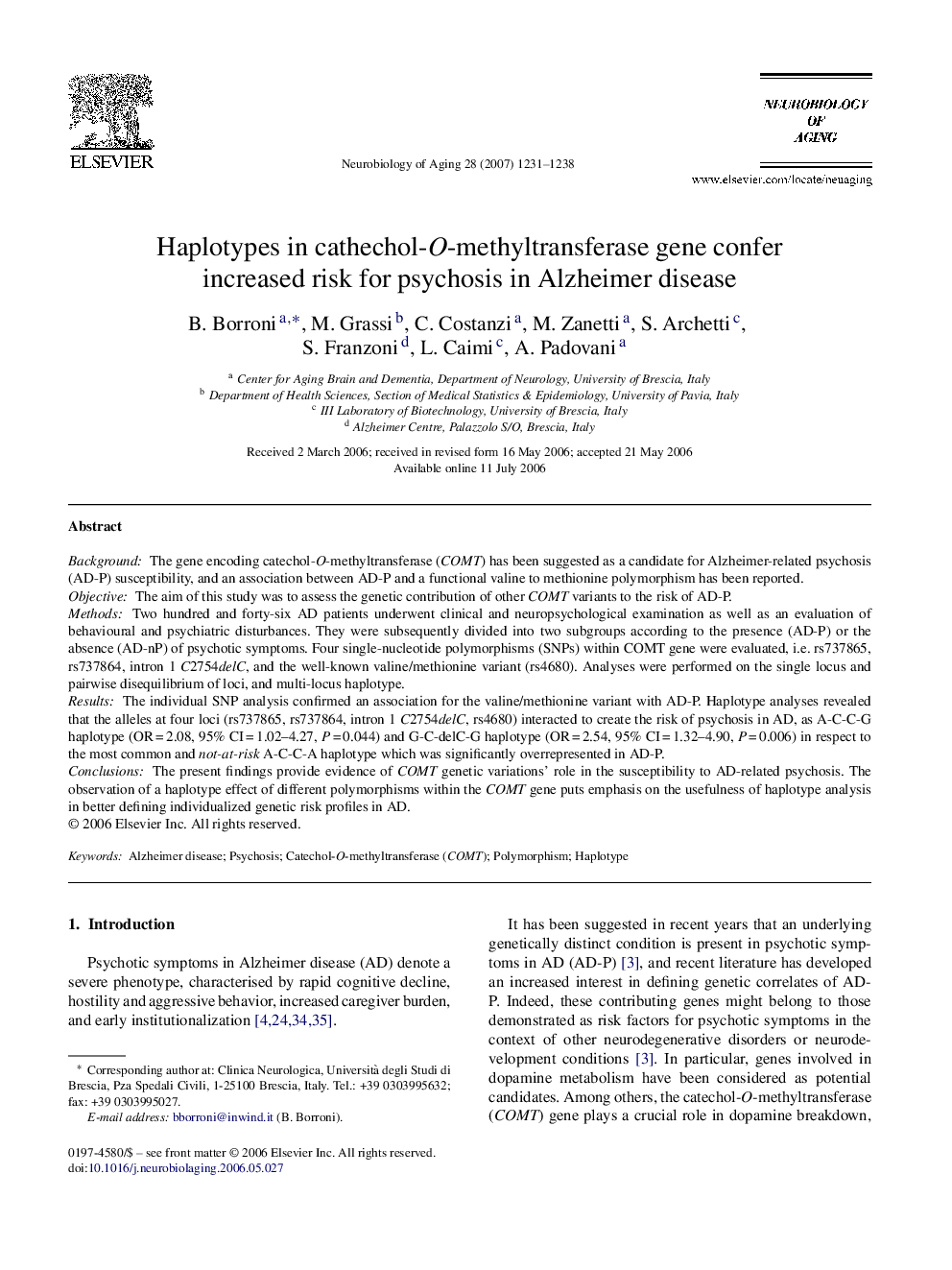| Article ID | Journal | Published Year | Pages | File Type |
|---|---|---|---|---|
| 331225 | Neurobiology of Aging | 2007 | 8 Pages |
BackgroundThe gene encoding catechol-O-methyltransferase (COMT) has been suggested as a candidate for Alzheimer-related psychosis (AD-P) susceptibility, and an association between AD-P and a functional valine to methionine polymorphism has been reported.ObjectiveThe aim of this study was to assess the genetic contribution of other COMT variants to the risk of AD-P.MethodsTwo hundred and forty-six AD patients underwent clinical and neuropsychological examination as well as an evaluation of behavioural and psychiatric disturbances. They were subsequently divided into two subgroups according to the presence (AD-P) or the absence (AD-nP) of psychotic symptoms. Four single-nucleotide polymorphisms (SNPs) within COMT gene were evaluated, i.e. rs737865, rs737864, intron 1 C2754delC, and the well-known valine/methionine variant (rs4680). Analyses were performed on the single locus and pairwise disequilibrium of loci, and multi-locus haplotype.ResultsThe individual SNP analysis confirmed an association for the valine/methionine variant with AD-P. Haplotype analyses revealed that the alleles at four loci (rs737865, rs737864, intron 1 C2754delC, rs4680) interacted to create the risk of psychosis in AD, as A-C-C-G haplotype (OR = 2.08, 95% CI = 1.02–4.27, P = 0.044) and G-C-delC-G haplotype (OR = 2.54, 95% CI = 1.32–4.90, P = 0.006) in respect to the most common and not-at-risk A-C-C-A haplotype which was significantly overrepresented in AD-P.ConclusionsThe present findings provide evidence of COMT genetic variations’ role in the susceptibility to AD-related psychosis. The observation of a haplotype effect of different polymorphisms within the COMT gene puts emphasis on the usefulness of haplotype analysis in better defining individualized genetic risk profiles in AD.
